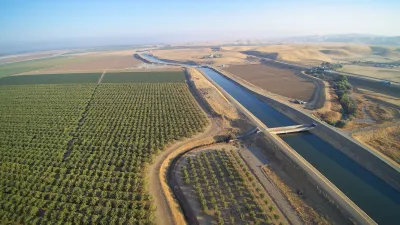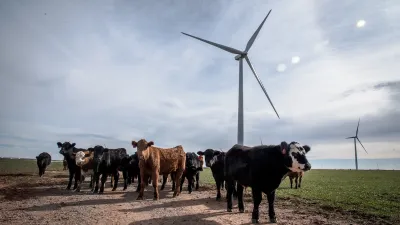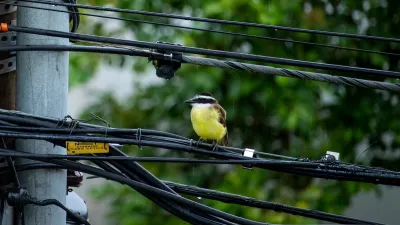Nobel laureate and new Energy Secretary Dr. Steven Chu is interviewed on what it will take to solve the climate change crisis - three major technological improvements plus carbon pricing. While no fan of coal, he acknowledges improvements are needed.
"Steven Chu, the new secretary of energy, said Wednesday that solving the world's energy and environment problems would require Nobel-level breakthroughs in three areas: electric batteries, solar power and the development of new crops that can be turned into fuel.
Dr. Chu said a "revolution" in science and technology would be required if the world is to reduce its dependence on fossil fuels and curb the emissions of carbon dioxide and other heat-trapping gases linked to global warming.
Solar technology, he said, will have to get five times better than it is today, and scientists will need to find new types of plants that require little energy to grow and that can be converted to clean and cheap alternatives to fossil fuels.
He said that while President Obama and Congressional Democratic leaders had endorsed a so-called cap-and-trade system to control global warming pollutants, there were alternatives that could emerge, including a tax on carbon emissions.
In any case, he supports putting a price on carbon emissions to begin to address climate change."
Thanks to Bob Maginnis
FULL STORY: Big Science Role Is Seen in Global Warming Cure

Study: Maui’s Plan to Convert Vacation Rentals to Long-Term Housing Could Cause Nearly $1 Billion Economic Loss
The plan would reduce visitor accommodation by 25,% resulting in 1,900 jobs lost.

North Texas Transit Leaders Tout Benefits of TOD for Growing Region
At a summit focused on transit-oriented development, policymakers discussed how North Texas’ expanded light rail system can serve as a tool for economic growth.

Why Should We Subsidize Public Transportation?
Many public transit agencies face financial stress due to rising costs, declining fare revenue, and declining subsidies. Transit advocates must provide a strong business case for increasing public transit funding.

How Community Science Connects People, Parks, and Biodiversity
Community science engages people of all backgrounds in documenting local biodiversity, strengthening connections to nature, and contributing to global efforts like the City Nature Challenge to build a more inclusive and resilient future.

Alabama: Trump Terminates Settlements for Black Communities Harmed By Raw Sewage
Trump deemed the landmark civil rights agreement “illegal DEI and environmental justice policy.”

Dear Tesla Driver: “It’s not You, It’s Him.”
Amidst a booming bumper sticker industry, one writer offers solace to those asking, “Does this car make me look fascist?”
Urban Design for Planners 1: Software Tools
This six-course series explores essential urban design concepts using open source software and equips planners with the tools they need to participate fully in the urban design process.
Planning for Universal Design
Learn the tools for implementing Universal Design in planning regulations.
City of Santa Clarita
Ascent Environmental
Institute for Housing and Urban Development Studies (IHS)
City of Grandview
Harvard GSD Executive Education
Toledo-Lucas County Plan Commissions
Salt Lake City
NYU Wagner Graduate School of Public Service





























